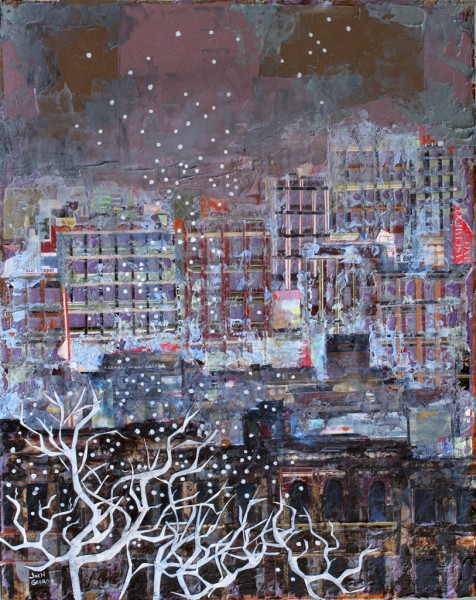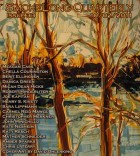At two o’clock on New Year’s morning, a man in Chicago leaves a party. Walking home, he slips on a patch of ice and falls, bashes his head on the edge of a bench. He loses consciousness and lies on the sidewalk until well after daybreak, his body obscured by a mound of plowed snow.
That afternoon, a Channel Six News anchor reviews his top stories. The tragedy of Stephen Cox, 37, husband and expectant father, found dead in Lincoln Park due to exposure, is not, in the anchor’s opinion, the worst tragedy to report, yet it distresses him most. In make-up, he protects his lapels with a paper bib and thinks of Stephen Cox’s open coat, a dress coat with no liner and clean lines, a gentleman’s coat. The image of such a coat stirs a vague vibration in the anchor’s mind, the story eclipsing all others because it flirts with his memory, as though there is a reason for the anchor’s sympathy for Stephen Cox that his memory knows but he does not. Perplexed, he phones his sister.
Leaving her shift at the clinic, the psychiatric nurse answers her brother’s call on her mobile. She says, “a London Fog, maybe?” when he asks what their father had worn during winters.
Her brother presses, “Did we know someone who died like this?” But the nurse is tired, and without reflecting answers, “No.” All day, the nurse had tried to soothe a patient, a young woman who believes herself to be made of paper and fears bright lights will set her on fire, that to leave her room is to risk being crumpled. The nurse has little patience left for her brother.
He sighs, “Stephen Cox, poor bastard,” and for a moment, the nurse brightens. She reminds him of Brian Cox, her college boyfriend. “Maybe that’s what you’re thinking of,” she says.
Later, the nurse attends a movie at the science museum. For the New Year, she has resolved to wear heels twice a week, to meet new people somehow. The acclaimed film documents explorers as they venture to climb Mount Everest. As she sits in the crowded theater, the nurse thinks of seeing movies with Brian Cox, how they kissed in the back row and held hands and sometimes let their hands travel. On the screen, falling snowflakes land on the camera lens and wetly blur the image and the nurse recalls the translucent paper her patients use for decoupage or origami. Once, spilled water dissolved a row of folded swans to pulp and the young woman patient was inconsolable.
Two of the explorers in the film are a married couple who set up camp at the base of the final peak. They have come so far, but at night the man shivers violently and struggles to breathe in the altitude until his wife holds an oxygen mask to his mouth. She secures the closures on his yellow parka. The theater is bright with the white light of the snow, and the nurse can see the man next to her lean into the woman on his other side, as though comforting her, or comforting himself. Who knows, the nurse thinks, what else is happening in their life and understands that to hold hands in a theater is to be in the theater, but somewhere else, too. To hold hands in a theater is to say I am watching this movie, but I am also in this life that I share with this person; that I bring this life with me wherever I go. Her own hands in her lap, and cold, the nurse curls her fingers.



 Included in the price of SmokeLong Fitness:
Included in the price of SmokeLong Fitness: